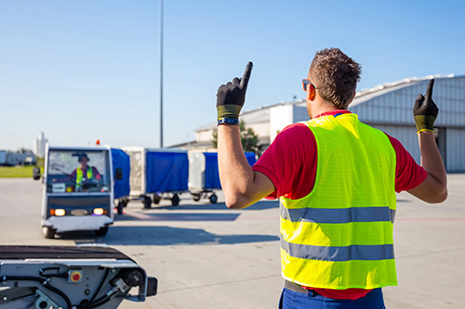
The COVID-19 crisis has shaken the aviation industry, putting it into an extremely vulnerable position as airlines and stakeholders strive to remain afloat. Having never faced a crisis of this nature before, one of the greatest challenges within the ground handling community in the context of the COVID-19 crisis remains the lack of the establishment of standardized performance-based procedures for ground handling operations supporting the industry based on ensuring ground handling activities are safely, efficiently and consistently accomplished.
The current crisis offers a unique opportunity for the industry to adopt common ground handling standards, enabling standardisation, simplification and a high level of safety to be achieved alongside the opportunity to reduce costs. and improve efficiency. As such, the Saudi General Authority of Civil Aviation (GACA) adopted the global standardized performance-based procedures for ground handling operations, setting an example in their strive towards improved safety and operational efficiency.
GACA was amongst the first governments/partners to adopt the IATA standards into the regulations below;
The new regulatory framework for the certification of ground services providers defines 11 ground service categories and 30 subcategories, while additional activities may be authorized if it is deemed in the interests of safety or enhances the quality and comprehensiveness of the services offered at an airport.
The regulatory framework regarding ground personnel requires all staff working for service providers to obtain a “work permit”. With a total of 13 specific job functions defined, some of the significant elements include;
This adoption of high international standards raises the bar for quality requirements and puts pressure on service providers to obtain the needed training to provide quality service and achieve customer satisfaction. Additionally, and in line with Saudi’s Vision 2030 to triple the number of passengers and create new regional HUBs at KSA airports, these quality enhancement strategies were put into actions as follows:
IATA congratulates GACA on the efforts put into integrating and adopting common industry standardization that will lead to easing the return of service, minimizing safety and security incidents and achieving effective and cheaper oversight of safe operations.